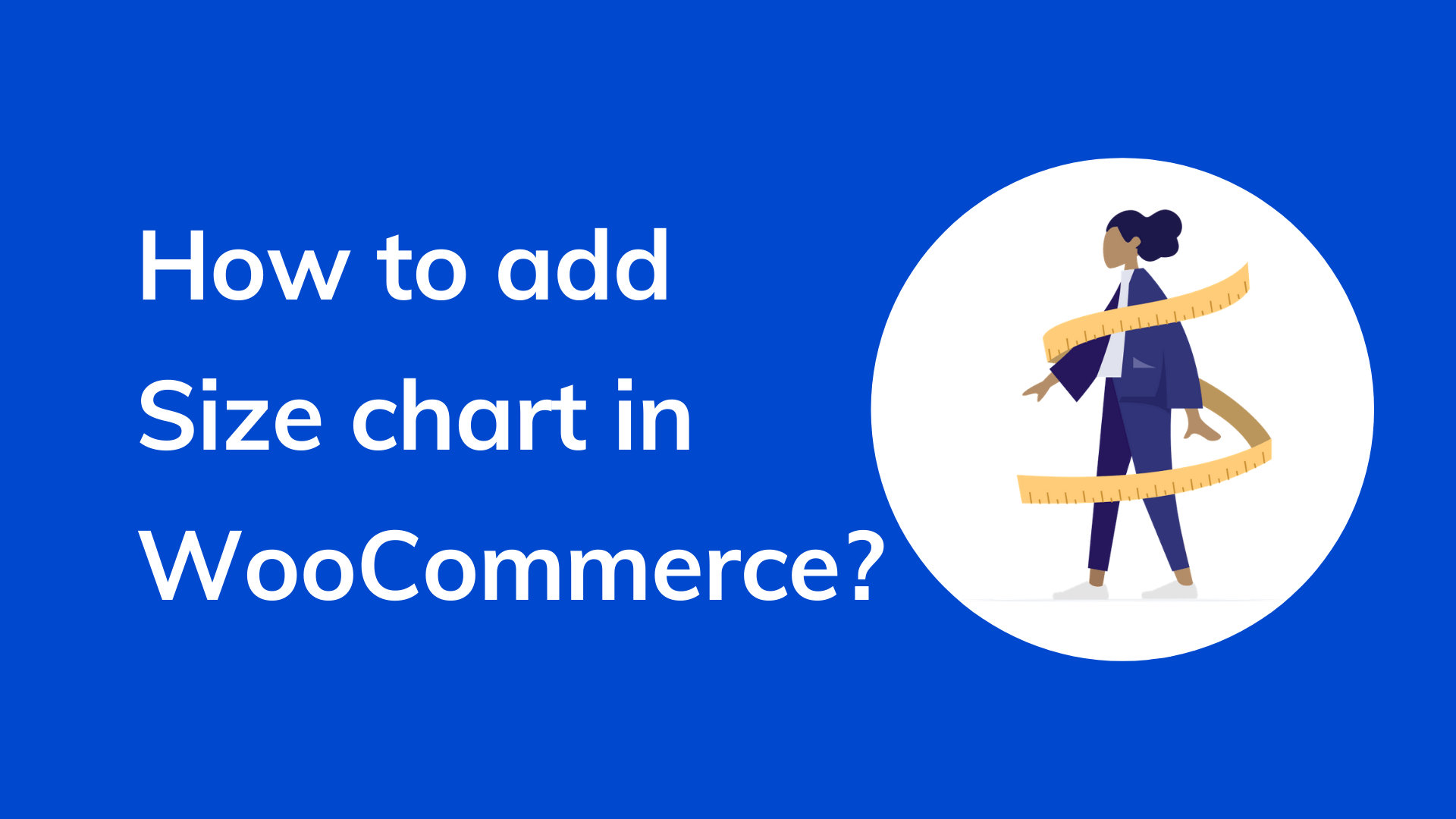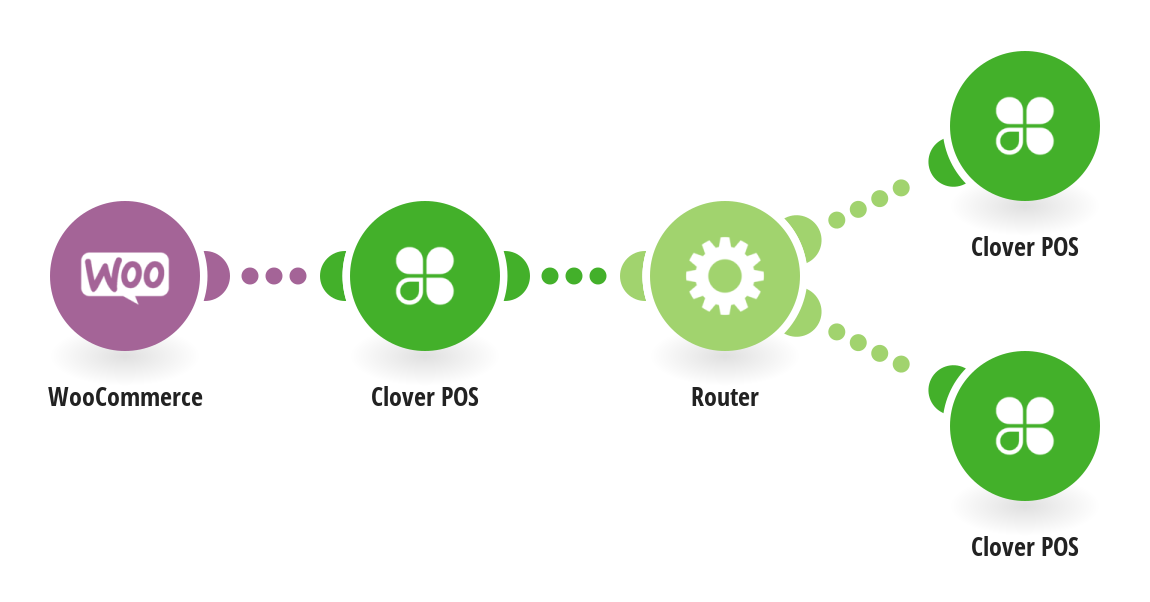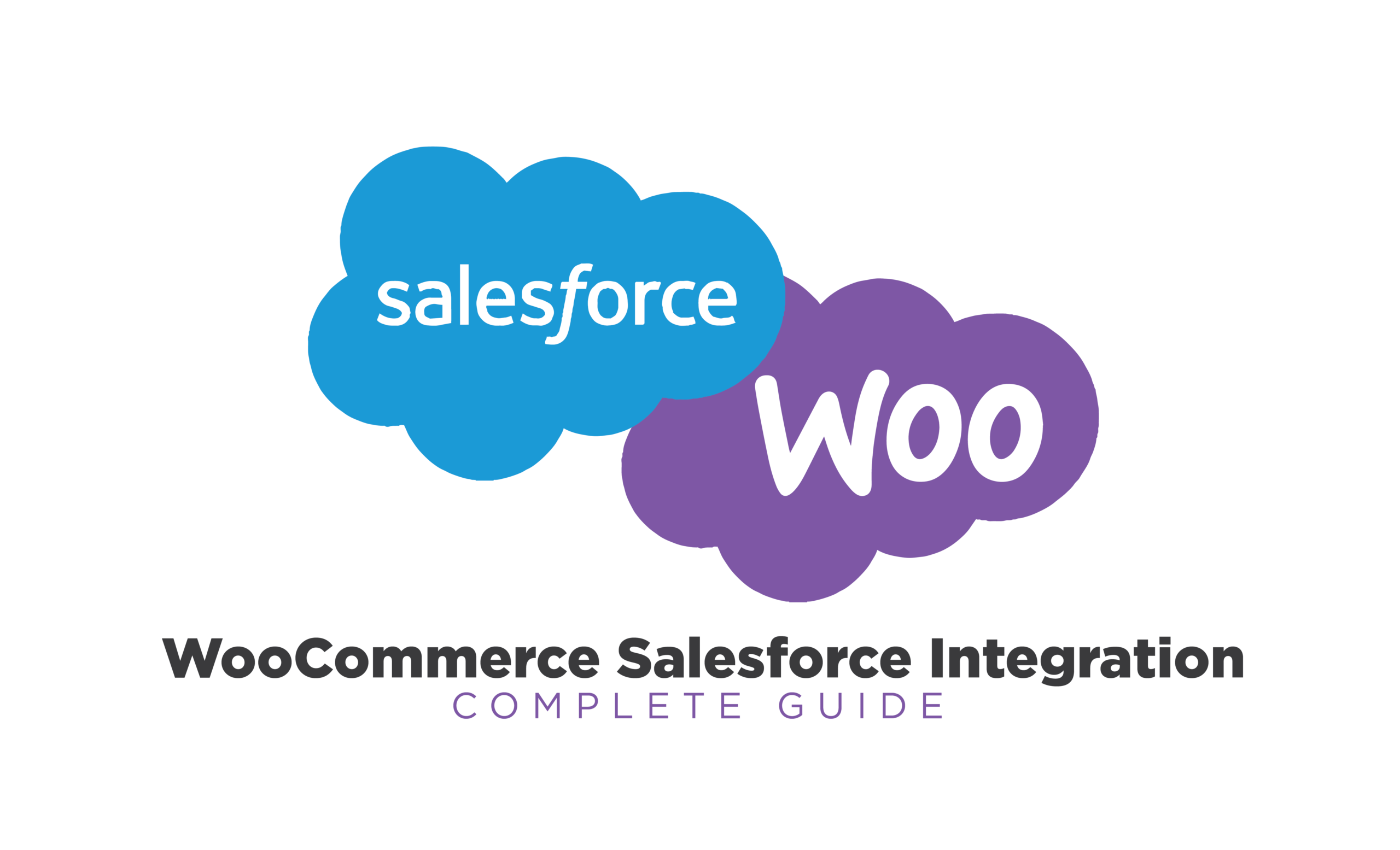Introduction
Security threats targeting eCommerce stores continue to intensify as customer data theft becomes a global issue of concern. As a business owner, you have to ensure that your website is secure and your customer data is protected from any possible breach.
Prior studies have revealed that Google blocks approximately 10000 websites daily due to malware capable of infiltrating customer data, exposing your customers to fraudsters.
However, as much as we may try to prevent it, security breaches are inevitable. For most WooCommerce users, it may be tricky determining how to respond to such security issues. With a significant market share in the eCommerce space, WooCommerce stores have more hackers targeting them than any other eCommerce platform.
For this reason, this article will take you through some essential precautions you can take to deal with these security threats. Let’s get started!
Practical Tips to Enhance WooCommerce Security
1. Install a Secure Socket Layer (SSL certificate)
Installing an SSL certificate is among the most effective measures to help safeguard your WooCommerce store against security threats. An SSL certificate ensures encryption of the data exchanged between your store and the customers, thereby ensuring better site security. Once the information exchanged between the server and the browser is encrypted, it will be impossible for hackers to access your transactions.
To add an SSL certificate, you can contact your hosting provider or any other accredited body such as DigiCert, GeoTrust, CheapSSLShop, etc. After installation, your page URL should change from HTTP to HTTPS to ascertain that your website is encrypted.
An SSL certificate impacts your SEO score on Google. Therefore, it’s beneficial to have one to attract more visitors who could eventually turn to your buyers.
2. Choose a trustworthy hosting provider
Selecting a reliable hosting provider plays a significant role in your business’s success. It is estimated that approximately 40% of WooCommerce site-hack attempts occur due to inefficient hosting providers.
Before choosing your hosting provider, consider gathering opinions from others who have used the service. If you are convinced that the host will not compromise the security of your site, then you can go for it. Hosting providers can either be generic or managed. Managed hosting provides advanced security measures to detect and block threats. In contrast, generic hosting poses a security risk due to poor management.
A perfect hosting provider should be compatible, support the latest plugins and updates, and have server-level security. On top of that, it should provide additional firewalls capable of protecting your networks against any form of intrusion.
Otherwise, if your hosting provider does not meet these requirements consider searching for a more secure alternative.
3. Enable login security
Most hackers target the login page of a WordPress site to access information in the WooCommerce site. As a result, a secure login page is vital. To enhance the settings of your login page, you should only offer a limited number of login attempts.
Hackers will usually attempt signing in to your account using multiple combinations of passwords with the help of bots. If login attempts are left to unlimited, intruders may manage to penetrate your store. Hence, limiting the number of login attempts for your WooCommerce store will deny hackers access to your store.
4. Set a strong password accompanied by two-factor authentication
Setting a strong password is essential to protect your WooCommerce store from unauthorized intruders. Only with a strong and hard-to-guess password can your site be secure.
A few practices you should consider when setting passwords include: using unique passwords for each account and encouraging your customers to do the same, storing passwords safely, and lastly, using passwords with a minimum of 8 characters consisting of numbers, letters, and special characters.
Since passwords are open to attacks, adding an extra layer of authentication is recommended. Two-factor authentication (2FA) is a suitable option to secure your WooCommerce store. It denies unauthorized persons from validating logins through additional authentication factors.
Hence, a user will be forced to input a one-time password or additional biometric authentication features to access an account. This will significantly reduce the chances of your WooCommerce store getting hacked.
5. Create a data recovery plan
Having a solid backup plan is highly recommended for WooCommerce stores. If your website is hacked, it would be simpler to retrieve it using the already backed up data.
Credit cards, debit cards, and payment transactions comprise the most sensitive information eCommerce businesses deal with. Plugins help in facilitating daily backup of critical WooCommerce data. Besides, some of them provide real-time backup enabling the saving of information immediately customers enter their data.
Here’s a detailed guide on how to back up your WooCommerce store in just a few steps.
6. Use security plugins
WooCommerce security plugins help scan your site for any possible threats or malicious attacks and prevent them from causing any damage to your store. If you are interested in safeguarding your WooCommerce store, you should consider security plugins. Let’s look at some of the best WordPress security plugins that you can use to secure your website.
3 Plugins to Secure Your WordPress WooCommerce Site
1. Sucuri Security
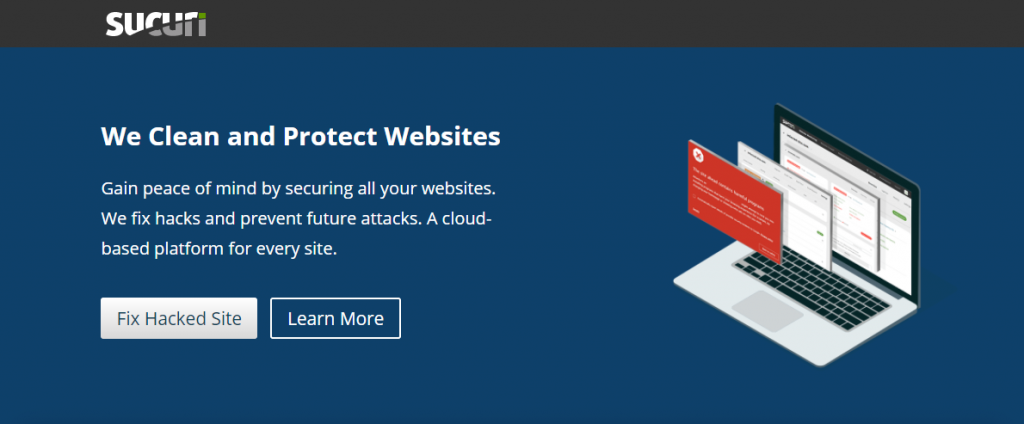
When it comes to WordPress security, Sucuri is an ultimate leader. The plugin offers a wide range of features to protect your website from threats, keeping it secure. Among the features that can benefit your website include a malware scanner, a brute force defense system, and a firewall filter to help in spam detection.
Besides security, Sucuri’s DNS level firewall with CDN servers helps boost your website, thereby boosting its performance. Audit logs are also available to help you track and spot any intrusions.
This plugin’s other powerful security features include checking SSL certificates, scanning for SEO spam, fast HTTP support, and automatic security audits.
2. Wordfence Security
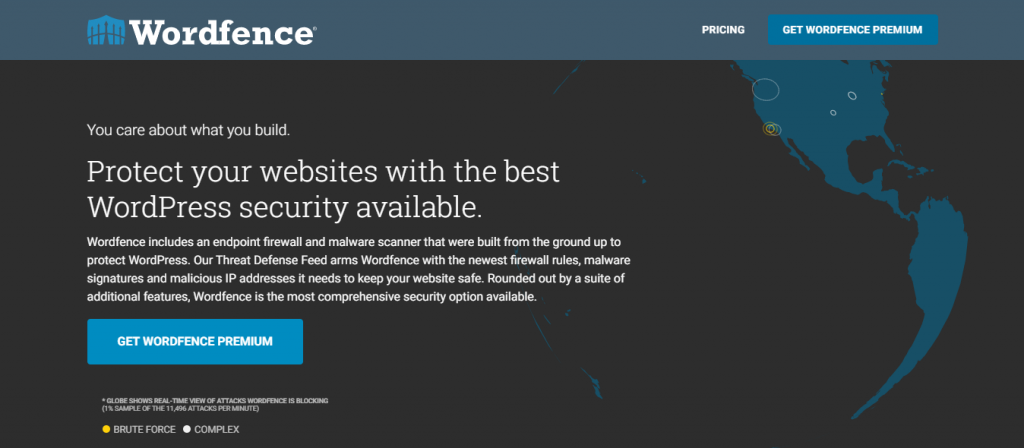
Wordfence is a powerful WordPress security plugin that utilizes an endpoint firewall to block hackers from accessing your site. The free version comes with a malware scanner, threat assessment, and exploit detection features.
Besides, you can launch a full scan at any time using Wordfence or even carry out an automatic scan for your website for common threats.
Other key features include two-factor authentication, live traffic monitoring, real-time malware signature update, IP/Geo blocklisting, and customizable email alerts.
Wordfence is available as a free and paid plugin, with the paid version going at $99/yr.
3. Jetpack
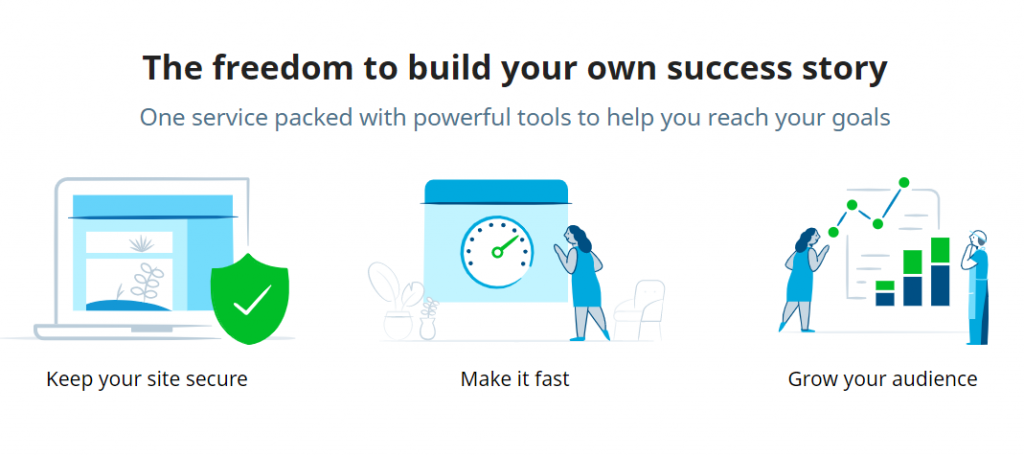
Jetpack is a WordPress security plugin that enables you to scan your website for security threats. With Jetpack, you can increase your site’s performance using an in-built content delivery network and manage your site’s activities.
The plugin is available as a free and paid version. If you’re looking for website compression, spam monitoring, or even brute force protection for your website, the free version would be a suitable option for you.
With the premium version, you can achieve spam filtering, malware scanning, automatic plugins, and daily automated website backups.
Conclusion
Launching a WooCommerce store can be lengthy to the point of making you forget about security concerns. Nevertheless, leaving your website unprotected could increase the chances of your site getting compromised.
For this reason, you should consider implementing a solution that will protect your site from malicious attacks and other harmful security threats.
To achieve this, consider having an SSL certificate for your site, choose a reliable hosting provider, use a strong password and secure your login page. Moreover, you could also have a strategic data backup plan to prevent data loss. Last but not least, installing security plugins would be a suitable option too.
By following the shared tips, your customers will find a secure platform to place their orders without having anything to worry about.
Did you enjoy reading this article? You might also want to check our guide on Security protocols for WooCommerce Websites.
Does WooCommerce come with SSL?
Yes. However, you will require some additional setup by either setting up SSL manually or using the services of a hosting provider with an SSL setup.
Do I need a WordPress security plugin for my WooCommerce store?
Yes. With a WordPress security plugin, you can protect your site from hackers, malware, and other security threats. Besides, these plugins will help optimize the speed of your website to give it a better performance.
Is it possible to get a copy of my data?
Yes. You can always request your personal data from the store owner. WordPress contains a personal data exporter that can help you retrieve the information.
How do I know if my WooCommerce website has been hacked?
The best way to tell if your site has been hacked is by scanning the website to confirm. After a successful scan, you can identify various WordPress security threats such as malware, irregular redirects, and spamming.


